Building a business is no small feat. Done right, it can lead to incredible success. Done wrong, it can all come crashing down, sometimes in the most ridiculous ways.
One Redditor asked users to share companies that deserve a “Corporate Darwin Award” for causing their own downfall, and the responses did not disappoint. From jaw-dropping mismanagement to baffling decisions, these stories prove that even the biggest businesses aren’t immune to a little self-destruction.
Scroll down to see the most unforgettable examples.
#1
WalMart in Germany.
Went there in the late 90s. Didn’t do any market research and just thought “What we sell in the US will be a success here too”, which not just lead to them selling products that Germans weren’t familiar with, in capacities that no German would ever buy, but also stuff like bedsheets that didn’t fit on German beds.
Even worse: They apparently didn’t know how well regulated workers rights are in Germany compared to the US, so when they did things like forcing the employees to start the workdays with cult like chants, forbid co-workers to have any kind of romantic relationship AND encouraged the staff to snitch on them if they would see someone hold hands or kissing, they got sued and after a few years just though it’s easier and cheaper to get the [hell] out of Germany, instead of adjusting to the culture.

Image source: Hausgebrauch, Mike Mozart / flickr
#2
Small businesses too. Farmers voting for tariffs. Or any business voting for tariffs. I know a few that went under. Bon voyage.

Image source: j_rooker, gpointstudio / freepik
#3
Osbourne Computers were selling portable computers and let it slip that the next version was going to be even better. So a lot of potential buyers just decided to wait until the next version was available. Trouble is, without the sales of Version One, they didn’t have the funds to bring Version Two to market and they went out of business.
They call that The Osbourne Effect.

Image source: The_Safe_For_Work, Casey Fleser / flickr
#4
A brand new poutine restaurant opened near me at the start of the pandemic (unfortunate timing). They put out a social media campaign offering a discount if you went in without a mask. Immediate boycott and fines. I think they were closed within two weeks.

Image source: TheSeansei, freepik
#5
Taco bell in Mexico. All stores closed within 6 months of each other…reason? While latinos enjoy it in the U.S., street vending reigns supreme in Mexico in terms of quality and price.
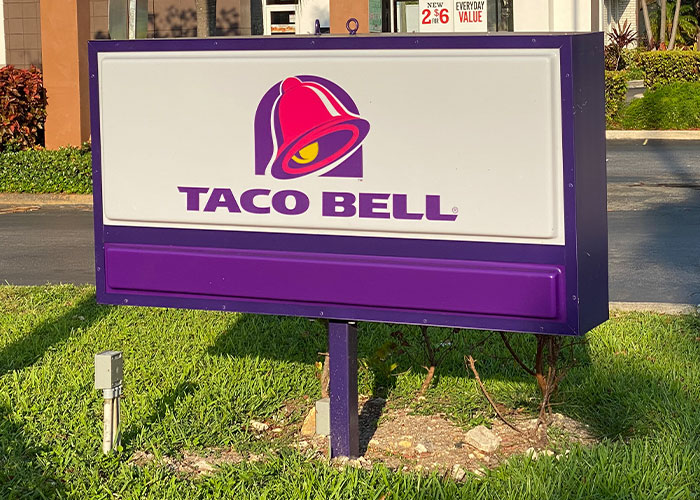
Image source: chicano32, Phillip Pessar / flickr
#6
Dasani, the Coke owned water brand tried launching in the U.K. in the early 2000s. Dasani is filtered municipal water launched into a market where natural spring water brands were very well established. Presumably Dasani just hoped that the fact it was filtered wouldn’t be noticed.
Pretty much as it was launched the newspapers exposed the fact that Dasani used water from a London suburb. It was seen as such a joke that a very popular TV sitcom ran an episode where a dodgy trader tried to sell London tap water as premium mineral water. The brand was [gone from] the U.K.
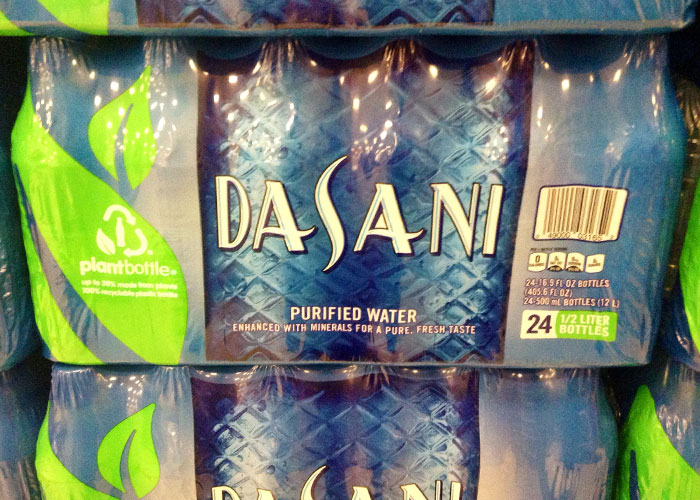
Image source: Thorazine_Chaser, Mike Mozart / flickr
#7
Schwinn Bikes. Outsourced to contract manufacturer in China/ Taiwan. Didn’t have a noncompete agreement. The contract manufacturer started making their own bikes.

Image source: jjflash78, quami77 / flickr
#8
Motorola [ended] itself by letting Robert Weisshappel continue to run the cellular division long after it was plain that digital was the future. Instead, he said in the mid-90s “Forty-three million analog customers can’t be wrong” and the board turned a deaf ear to his colleagues that were begging for a little bit of money to develop the next gen of phones. Nokia came in and dominated the market and Motorola faded away.
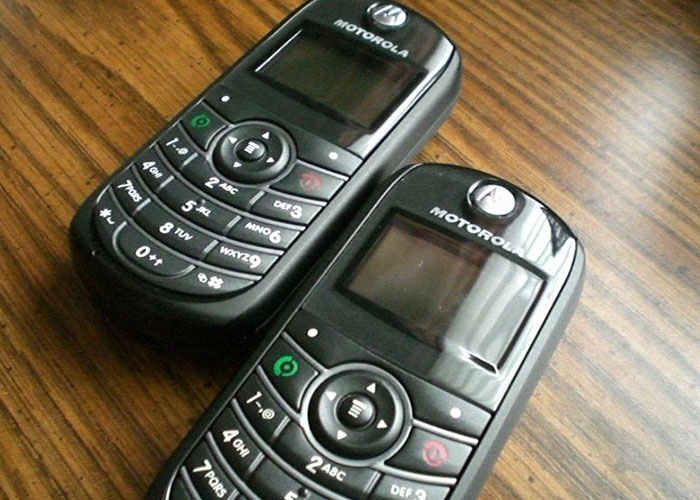
Image source: inode71, Cat / flickr
#9
There was this guy who owned a casino in Atlantic City NJ. It was doing well, so he decided, why not open a second casino in Atlantic City and make twice as much money? The new casino got half the business by pilfering business from the old casino. His overhead costs doubled with 2 casinos and his income plummeted. Both went out of business.

Image source: CarmichaelD, mingyue / freepik
#10
Ratner’s Jewelers chain in the UK. Had a major market share of high street business countrywide and the owner Ratner made comments at a CEO conference saying how [bad] his products were and the group almost went bust losing £500 million.

Image source: Common-Ad6470, Signet Jewelers
#11
In Australia there was a chain of stores called Godfreys which only sold vacuum cleaners and associated accessories. At their peak they were 60 stores across the country…just selling vacuums.
They were offered to be the sole distributor of Dyson products but passed.
Went bust a few years later after a very slow and painful retailing [demise].
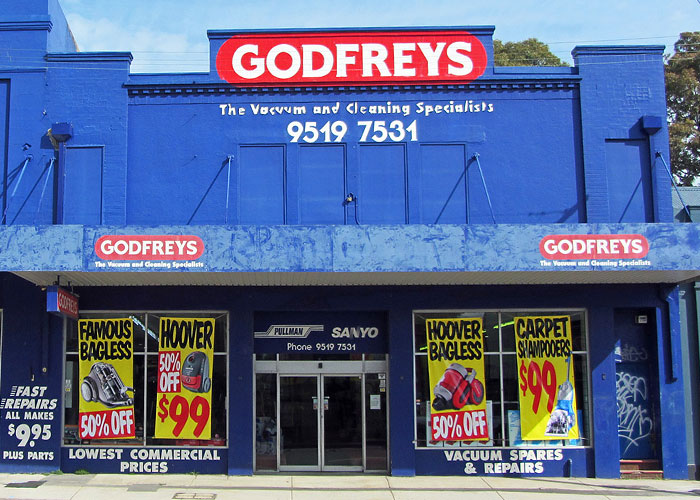
Image source: ringo5150, Newtown grafitti / flickr
#12
There was an appetite-suppressing chocolate in the late 70s/early 80s called AYDS.
You can guess what happened next.
ditchdiggergirl:
The mistake was in deciding not to rebrand or alter their name. It was under discussion, IIRC and they decided it wasn’t necessary.
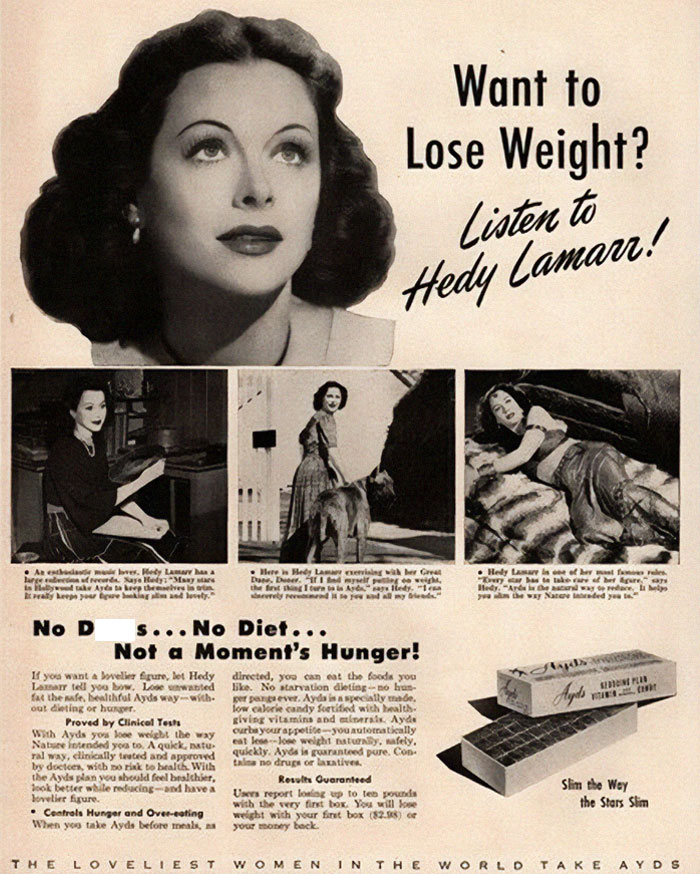
Image source: Drewey26
#13
I still, to this day, have no idea how Skype didn’t absolutely CRUSH it during the pandemic. People knew what Skype was and many even had accounts already. It was tailor-made for the pandemic…and then…it just failed. So over complicated compared to Zoom. And the rest is history.

Image source: Professional_Bundler, Allan Henderson / flickr
#14
Blockbuster refusing to buy Netflix for $50 million. “Streaming will never catch on” and “laughed them out of the room” Netflix currently valued at $1200/share and company is worth 512 Billion.
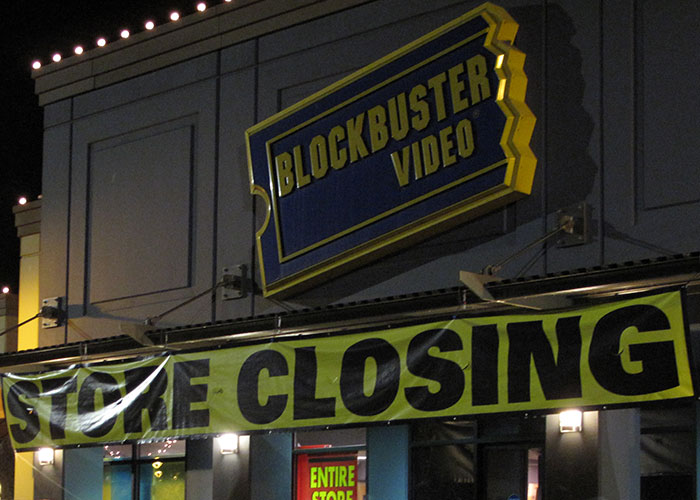
Image source: LankyGuitar6528, Consumerist Dot Com / flickr
#15
Target Canada: they bought the retail space of Zellers, a well known Canadian company that just went bankrupt after a slow [demise] defined by depressing half empty stores. Then they didn’t properly plan the supply chain so the new Target stores were also half empty because products weren’t arriving on time. Add to that that both Zellers and Target use the same red and white colour schemes and it wasn’t really clear how Target was actually different from Zellers (which no one had been shopping at) – Target left Canada very quickly after taking massive losses.
I believe that this is now well-known a case study of how not to enter a new market.
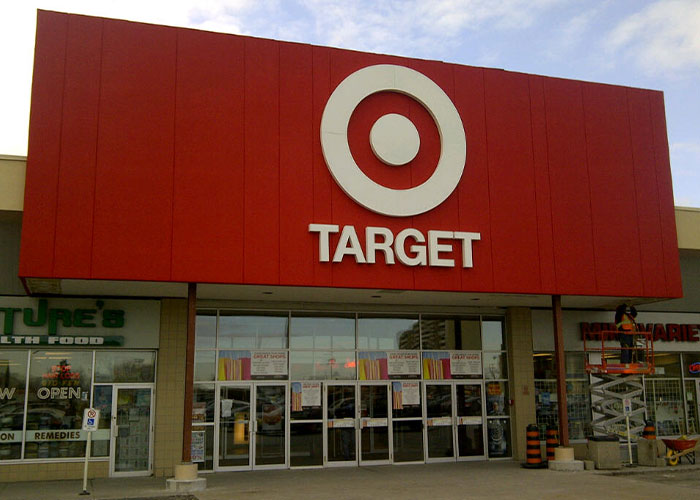
Image source: alpaqa_stampede, Kimco Realty / flickr
#16
In the late 90’s there was a company called The Learning Company. One year they had a brilliant idea to sell their boxes of software at a discount for $10 while offering a $10 rebate.
They didn’t put a date limit on the rebate.
They didn’t restrict it to a single household.
They didn’t put any safeguards on the number of rebates that could be collected accounting-wise or in legal terms.
The typical claim rate for rebates of that type was something like 5-10% of all purchases would claim a rebate. It ended up being >85%.
Not only did the company sell more units in that single year than all previous years together but they earned so little money that they drained the company’s cash reserves and went into debt in under a year.
Then the bad effects became apparent… the market was so saturated with educational software that no one needed or wanted it.
Schools had already bought every copy needed and claimed the rebate so zero dollars revenue.
Home purchases were curiously skewed and they realized that word had gotten out. Home buyers were buying dozens to hundreds of copies and claiming the rebates. Again zero revenue. Then those same buyers were turning around and donating their software copies for a charitable write off. All the while, TLC made no money.
The fallout was that TLC went from a world leader in the industry to being sold to Mattel corporation then for pennies on the dollar to a private equity firm. Mattel was crippled by this for years and the entire debacle was been referred in business schools as possibly the worst business deal in the late 90’s.
I saw this occur firsthand.
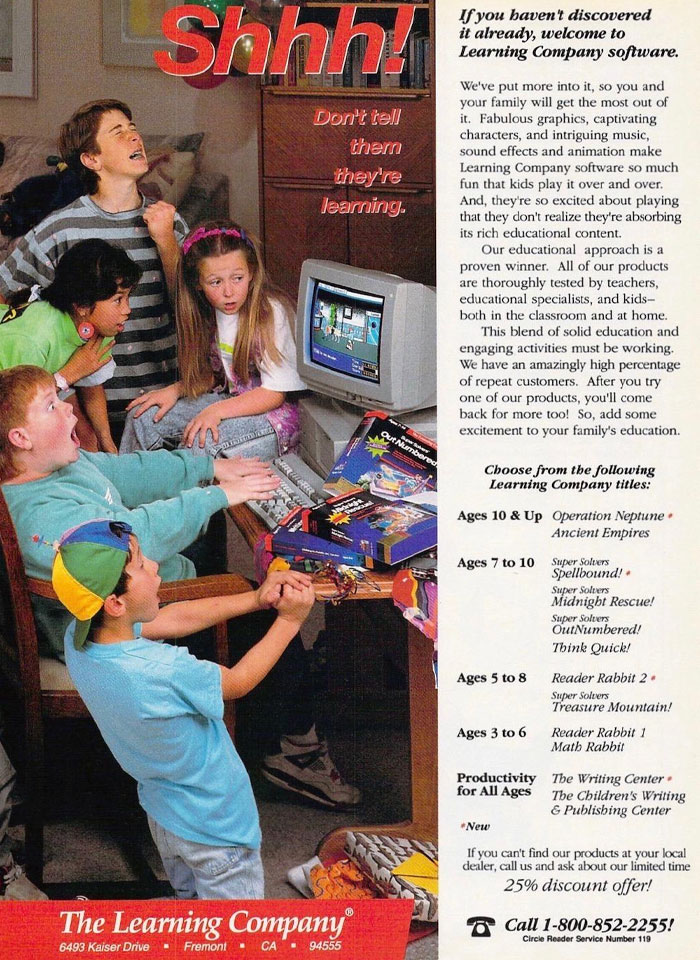
Image source: WrongOnEveryCount, Tony_Tanna78 / reddit
#17
I worked with a guy who used to work at Kodak Corporate in Rochester, NY. He said that in the early 2000s, a company meeting they discussed the rise of digital photography. Kodak knew it was a threat to the film business, but “we figure we have 20 years to transition”. Ten years later, Kodak was bankrupt.
Image source: RogLatimer118
#18
Wizards of the Coast.
The CEO decided he didn’t need people who knew Dungeons and Dragons to write good work and that we are all beholden to their product since it was the original. The moron has tanked the company. He wanted to get money from 3rd party sellers so he wrote it into the gaming license that anything they wrote would be owned by WOTC. That pretty quickly removed any goodwill from the entire gaming community.

Image source: mistrornge, Chris Gerrard / flickr
#19
Toys R Us thought that e-commerce was just a fad that would pass.
They got so many orders on their website that they couldn’t get them all out in time.
Then they PAID amazon $50 million a year to sell AND a percentage of their sales to use their marketplace, and be their only seller of toys. So when you went on the toys r us site, it would redirect you to their amazon shop.
Amazon literally learned their whole business and turned their back on Toys r Us and started selling the same stuff without them. Toys R us won the lawsuit and made their $50m back but at that point, customers stopped caring about toys r us and started buying toys on amazon instead.
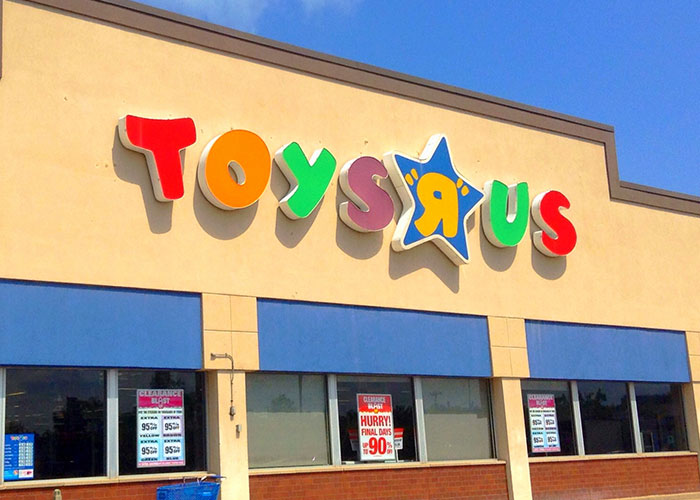
Image source: duuchu, Mike Mozart / flickr
#20
Steve Ballmer, Microsoft CEO, initially laughed off the iPhone and especially at the thought that people would pay >$600 for a phone. A few years later Windows Phone came out (Microsoft’s first touch interface), but it was too late and they lost the mobile market.

Image source: RogLatimer118, Kārlis Dambrāns / flickr
#21
Sears had the stores, the distribution network, the buying power, the mailing list, and the cash to have become an incredibly powerful hybrid retailer. Same is true when WalMart came along. Had they just adjusted their model and thrown a [lot] of resources at it, they could have crushed both like a bug.
But, dinosaur that they were, they just stared at the WalMart and Amazon comets and did nothing until they were flattened.
Sinz_Doe:
Sears had everything they needed to be what Amazon is, but were lazy.
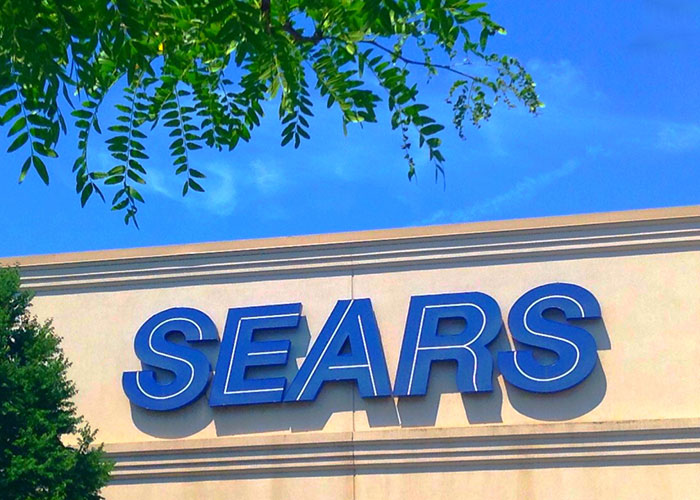
Image source: AnybodySeeMyKeys, Mike Mozart / flickr
#22
The British division of Hoover has to be one of the top Darwin Awards. They offered two free round trip tickets to the US (value of over 600 pounds), to customers who purchased 100 pounds in Hoover products.
Von_Baron:
It was cheaper to buy a hoover, use the plane tickets and just give away hoover. It had a long term effect on the brand because you could pick up the hoovers for next to nothing in second hand and charity shops. Which meant that for years after the promotion ended their sales were down because everyone already had one.
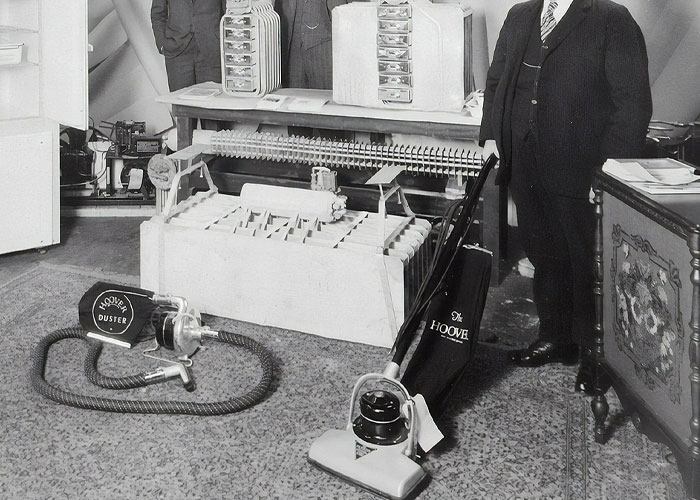
Image source: sixshots_onlyfive, INTV1980 / Wikipedia
#23
Just For Feet and the Super Bowl ad.
Basically, it was an ad where white guys in a jeep are chasing a barefoot black man through the brush. They shoot him with a tranquilser and put a pair of their shoes in his feet.
EDIT: Found it.

Image source: Voltmann
#24
The Jaguar rebrand hasn’t gone very well.
Image source: SidewaysLlama
#25
Yahoo could have bought Google for $5 billion in 2002, but they would only offer $3 billion.
That alone didn’t [end] Yahoo, but it sure didn’t help.
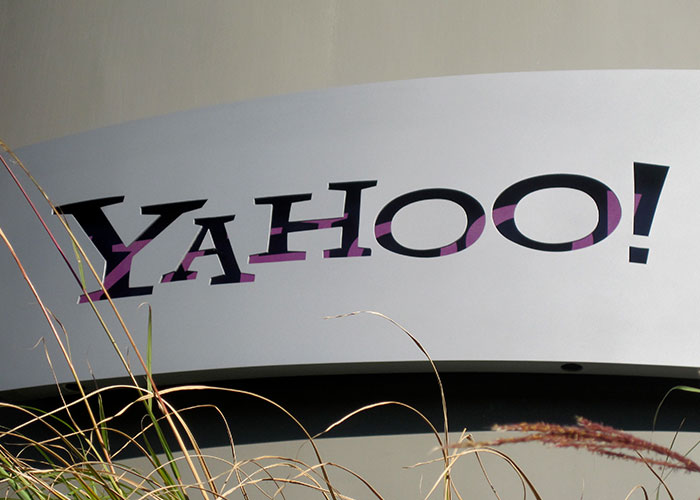
Image source: PMMeUrHopesNDreams, Neon Tommy / flickr
#26
I doubt that guy is selling many submarines now…
Image source: richardathome
#27
Circuit City backing DivX, the one-time use dvd “rental ” program. From memory, they sank something like 500 million dollars into the development, only to have users rebel and boycott Circuit City.
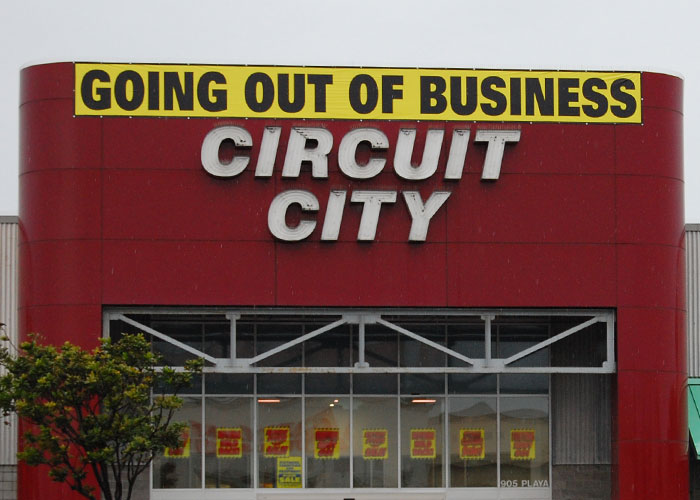
Image source: eclectictaste1, Adam Kent / flickr
#28
Quiznos. Forced their own franchisees to buy overpriced products and put themselves out of business.
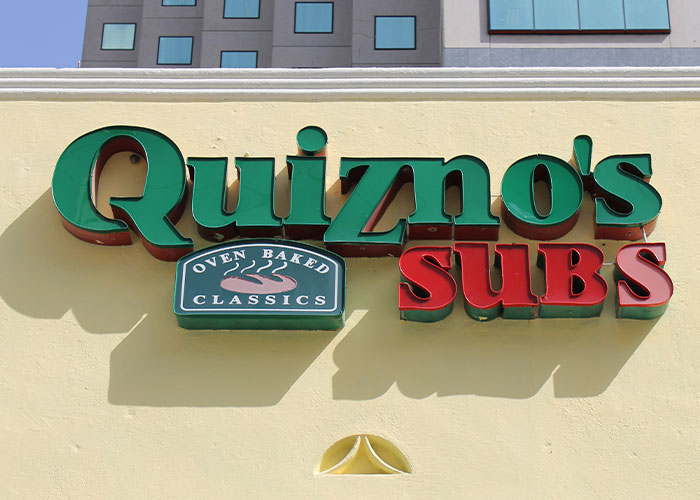
Image source: LSUChase83, Phillip Pessar / flickr
#29
Homebase/Bunnings in the UK.
Homebase was a long-established DIY store in the UK that over the years had started to focus more or homeware and soft furnishings, which became their USP, and less on DIY tools and hardware, but they were struggling. Along came Bunnings, a successful DIY retail company from Australia, and bought-up Homebase for £340m. Unfortunately they didn’t do their homework and assumed that the Australian business model would work just as well in the UK, so they immediately fired all of Homebase’s senior and middle management, dropped all the homeware lines and filled the new store with expensive BBQs and other outdoor furniture and gear suited to long, hot Australian summers, but not short, wet mild UK ones.
Within 6 months the new stores were losing millions, and after just 2 years they all closed with Bunnings having to write-off over £500m in what’s now described as ‘the most disastrous retail acquisition in the UK ever”.
Image source: NeilJonesOnline
#30
Blackberry (RIM) every time. Abandon the market for two years to invent some [awful] QT based phone while the Dalvik version was created in 12 weeks.
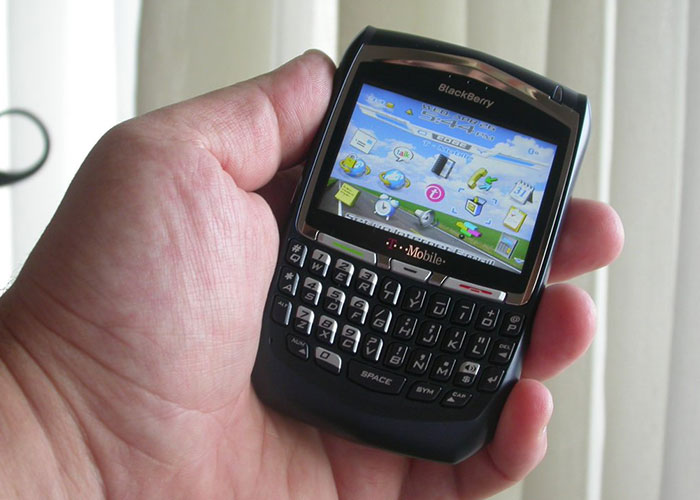
Image source: Richard_J_George, Mike DelGaudio / flick
#31
Maglite – LED technology came along and they didn’t want to invest in it. Their market share plummeted.
Image source: GraemeMakesBeer
#32
Knight Capital. Their high-frequency trading algorithm went berserk and lost $440M in 45 minutes, bankrupting the company.
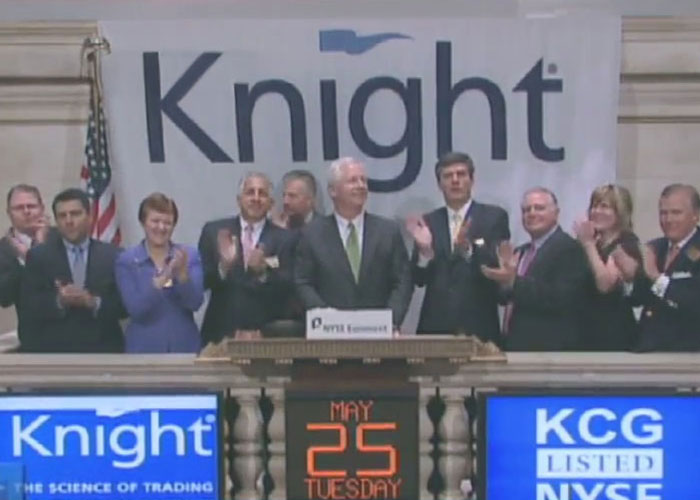
Image source: chillywillylove, New York Stock Exchange / Youtube
#33
In 2014 Red Lobster sold off most, if not all, of the buildings it owned for a quick way to make that sales quarter look amazing. As part of the sale, they signed a leaseback deal, effectively adding a premium rent expense to 500-something locations.
Pandemic happens, customers stay home, commercial rent costs go up, some C-suite guy rams through a marketing stunt that backfired expensively, and buh-bye.
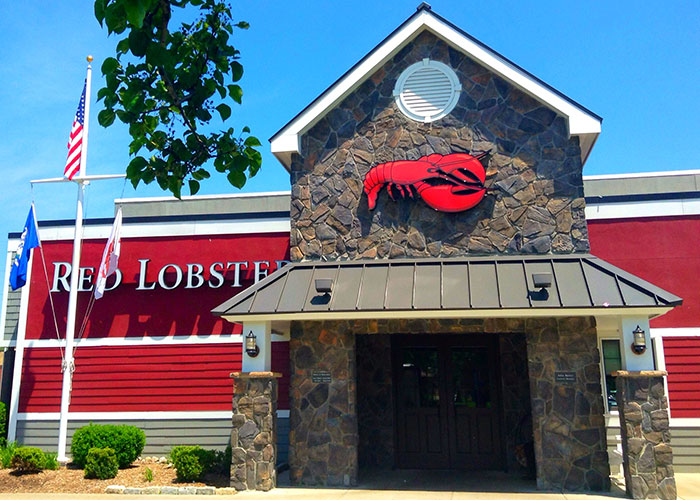
Image source: MeesterPepper, Mike Mozart / flickr
#34
The digg.com redesign is what pushed myself and a bunch of other users to start using Reddit basically overnight.
Image source: ElOsoSabroso
#35
Looking at you Tumblr.
Image source: scare_crowe94
#36
AOL Time-Warner. The (then) largest online provider acquired a large print, movie and music corporation.
Some will say this was the beginning of the dot com bubble bursting, so it was inevitable that it would fail. But it’s also the same year that Apple launched the iTunes store and they had to license their music.
ironcladtrash:
I could write a novel about the internet provider side of this too. AOL and cable side of Time Warner did not get along. AOL had a massive backbone and could have still been a major player in that market if they weren’t so arrogant and hard to work with. When my company was bought by Time Warner we built a backbone for them as they did not want to use AOL and they didn’t have the expertise needed.
Image source: jim_br
#37
Radio shack. Could have been a main player in personal computers, and cellphones.
Image source: donitosforeveryone
#38
Every business that sold themselves to private equity.
Image source: andrewboring
#39
I feel like this one is in progress: Boeing moving its management away from its factory.
Gwtheyrn:
Yeah, that was the arrogance of the McDonnell-Douglas people. They said that the peons shouldn’t have access to those who control the money.
They might be correcting course. The new CEO works out of Seattle and makes it a point to regularly be around and visit the production floor and engineering hall.
Image source: PenTestHer
#40
These haven’t [ended] the business, but they certainly did shoot themselves in the foot:
Target: company really popular with suburban liberal women decides to try to pander to the Reich and gets rid of their DEI initiatives. They experience a decent boycott and almost no one from the Right was going to shop there anyway since they’re 10-20% more expensive than Walmart.
Cracker Barrel: favorite of country and right wing people because it looks like an old timey redneck hang out. Decides to redo its image by restyling itself from the rust encrusted implements to a Chipotle-esque interior AND they got rid of the cracker. Pissed off the Right and left the left baffled.
Pro tip: if your largest market behaves a certain way, that needs to be taken into account.
Image source: KP_Wrath
 Follow Us
Follow Us





